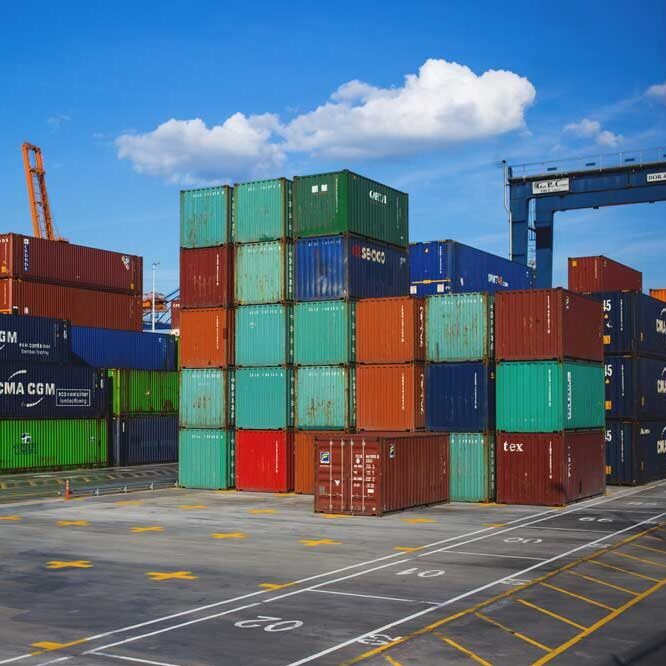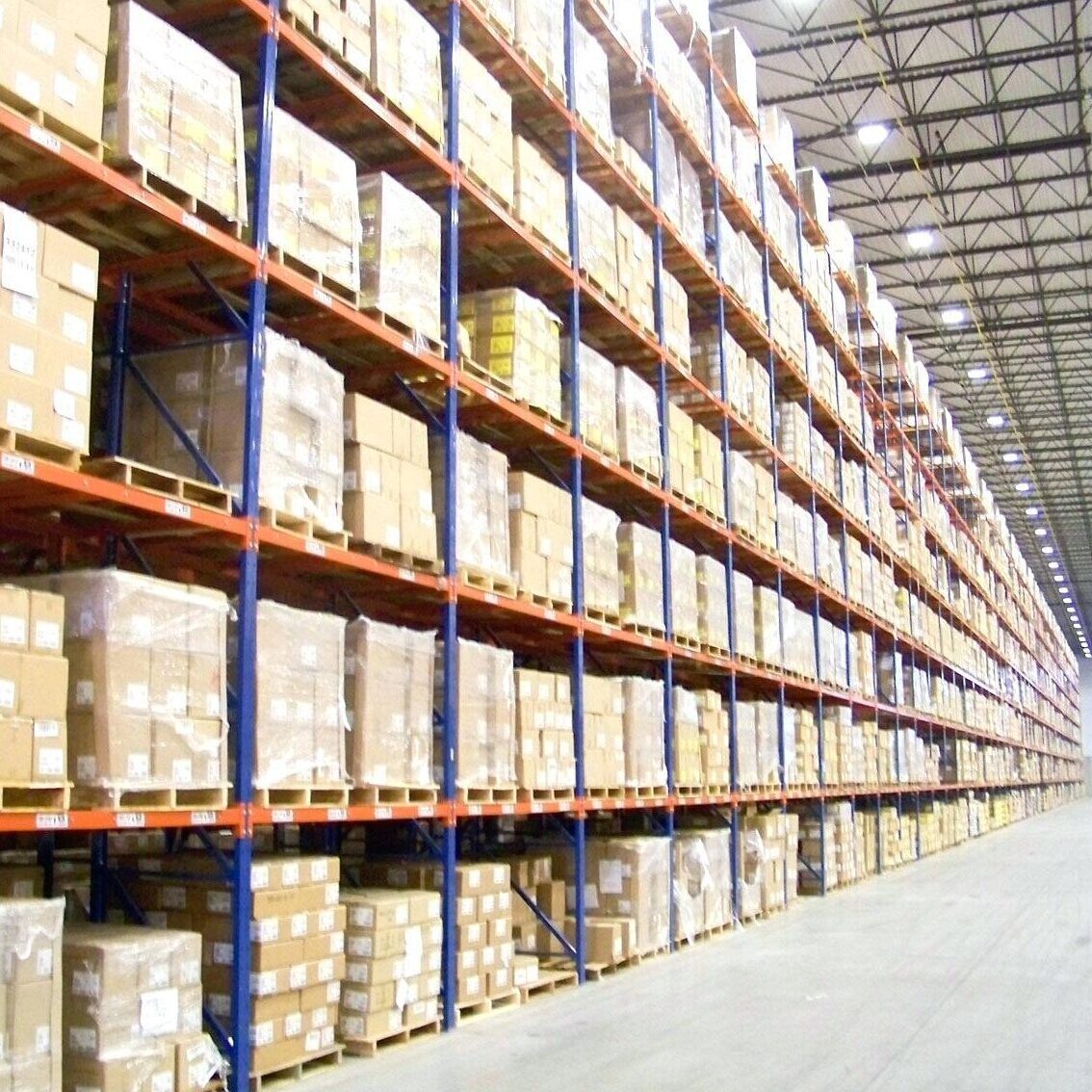Logistics companies for sale present a unique opportunity for savvy investors and entrepreneurs looking to capitalize on the ever-growing transportation industry. These businesses often come with long-established contracts, partnerships, and valuable assets that can provide an excellent foundation for future growth. This post examines the nuances of procuring logistics companies and how they can be advantageous investments.
We will discuss the benefits of purchasing an existing logistics company, such as access to established customer bases and expansion into new markets. Additionally, we’ll examine the process of preparing your business for sale by obtaining the required certifications and maximizing EBITDA through cost management. Furthermore, working with experienced professionals during transactions ensures smooth negotiations while maintaining confidentiality throughout the process.
Lastly, we will touch upon vertical integration trends within retail sectors due to supply chain disruptions and how these create growth opportunities through acquisitions in the logistics space. Stay tuned as we unravel essential insights on investing in logistics companies for sale.

West US E-Commerce Fulfillment Company (CSB)
$5 million Revenue
Adjusted EBITDA $1,000,000


West Last-Mile Staffing and Fleet Solutions Company (CTT)
$13 million Revenue
Adjusted EBITDA $1,300,000


Southeast Technology Platform Offering 4PL (Warehousing) Solutions and Services Company (FMF), On Hold
$12 million Revenue
Adjusted EBITDA $1,700,000


Southwest 3PL (Third Party Logistics) Company (ACS)
$9 million Revenue
Adjusted EBITDA $1,120,000


Northeast 3PL Warehousing and Logistics Company (NVB), Closed
$9 million Revenue
Adjusted EBITDA $3,000,000


Mountain West Warehousing Company (IVF), On Hold
$9 million Revenue
Unique Structure of Logistics Companies for Sale
When contemplating a purchase of a transportation or logistics firm, it’s essential to evaluate the distinct arrangement and services every business offers. One example of a logistics company for sale is an interstate carrier based in Tennessee, with office space in Downtown Miami and a fully operational yard. This unique structure allows the company to maintain low operating costs by operating out of different locations, ensuring profitability even if trucks are not utilized.
Long-established Contracts with Top Shippers
A key advantage of acquiring such businesses is their long-standing relationships with top shippers. These contracts provide stability and predictability in revenue generation, making them attractive investment opportunities. Additionally, these partnerships often come with exclusive shipping rates that can be leveraged to increase profit margins.
Partnerships with Brokers
In addition to direct contracts with shippers, many logistics companies also have established partnerships with freight brokers who help secure additional loads when needed. These relationships can further expand the potential customer base while providing flexibility during periods of fluctuating demand.
Eligibility for $500k Chase Bank Line of Credit
- Favorable Financing Options: Some logistics companies may already have pre-approved lines of credit from major banks like Chase Bank, which can be transferred upon acquisition.
- Easier Access to Capital: Having this eligibility makes it easier for new owners or investors to secure the funding necessary for growth initiatives or working capital requirements.
- Potential Cost Savings: Pre-existing credit lines often come with favorable interest rates and terms, potentially reducing the overall cost of financing.
By understanding the unique structure and offerings of logistics companies for sale, investors can make informed decisions that align with their strategic goals. This knowledge helps to ensure a successful acquisition process while maximizing potential returns on investment. This particular logistics business has been in operation for 11 years and has a strong management team in place. It also includes a truck repair shop and freight forwarding services, making it a comprehensive freight-moving business for sale.
Logistics companies for sale offer a unique structure that can provide buyers with access to long-established contracts, partnerships with brokers, and eligibility for a $500k Chase bank line of credit. With these benefits in mind, it is worth exploring the advantages of acquiring logistics businesses.
Key Takeaway:
Logistics companies for sale have unique structures and offerings that investors should consider before investing. These businesses often have long-established contracts with top shippers, partnerships with brokers, and eligibility for favorable financing options like pre-approved lines of credit from major banks. Understanding these factors can help ensure successful acquisitions while maximizing potential returns on investment.
Benefits of Acquiring Logistics Businesses
Investing in logistics companies can unlock synergies and capitalize on new markets while providing guaranteed capacity and loyal drivers. These acquisitions can also help businesses expand their operations or enter the transportation industry more easily. In this section, we will discuss some key benefits of acquiring logistics businesses.
Access to an Established Customer Base
When you acquire a logistics company, you gain access to its existing customer base. This allows your business to benefit from long-standing relationships with clients who have already built trust with the acquired company. It saves time and resources that would otherwise be spent on building new client relationships from scratch. Gaining access to an established customer base through the acquisition of a business can provide your organization with rapid growth opportunities.
Expansion into New Markets
Purchasing a logistics company enables you to expand into new markets by leveraging the expertise, infrastructure, and network connections of the acquired firm. This expansion may involve entering different geographic regions or offering specialized services tailored towards specific industries such as automotive or pharmaceuticals. By tapping into these untapped opportunities through acquisition, your business can achieve new market development, which ultimately leads to increased revenue streams.
Guaranteed Capacity through Existing Assets
- Fleet: When acquiring a transportation/logistics company, one significant advantage is gaining access to its fleet of vehicles (trucks, vans). This provides immediate capacity without having to invest heavily in purchasing additional assets upfront.
- Warehouse Space: Acquiring a logistics company often includes warehouse facilities, which can be used to store inventory and manage distribution operations more efficiently. This reduces the need for additional investments in real estate or leasing costs.
- Technology Infrastructure: Established logistics companies typically have invested in technology systems that support their operations, such as transportation management software (TMS) and warehouse management systems (WMS). By acquiring these assets, your business can benefit from advanced tools without having to invest time and resources into developing them internally.
In summary, acquiring a logistics business offers numerous benefits that help businesses expand their operations while capitalizing on new market opportunities. From gaining access to an established customer base to leveraging existing assets for guaranteed capacity, these acquisitions provide significant value-adds for organizations looking to grow within the transportation industry.
Gaining a logistics venture can be highly advantageous, with the potential to tap into an existing customer pool and expand into novel areas. With proper preparation, you will be able to maximize EBITDA through cost management and specialized services offered within niche markets in order to attract potential buyers.
Key Takeaway:
Acquiring logistics companies can provide numerous benefits, such as access to an established customer base, expansion into new markets, and guaranteed capacity through existing assets like fleet vehicles, warehouse space, and technology infrastructure. These acquisitions offer significant value-adds for organizations looking to grow within the transportation industry.
Preparing Your Business for Sale
To maximize returns when selling your logistics business, it’s essential to prepare years in advance. Key steps include obtaining necessary authorizations/certifications, maximizing EBITDA (earnings before interest, taxes, and depreciation), investing in technology/web presence development, as well as specializing services offered.
Obtaining Required Certifications/Authorizations
Before launching your business, it is essential to obtain the necessary certifications and authorizations that are required for compliance in the industry. This may include MC numbers, DOT registrations, or other relevant permits, depending on your specific niche. Having these credentials not only demonstrates compliance with regulations but also increases credibility among potential buyers.
Maximizing EBITDA Through Cost Management
An important aspect of preparing a logistics business for sale is optimizing its financial performance by focusing on cost management strategies. These can range from renegotiating contracts with suppliers and carriers to implementing more efficient routing software solutions like Paragon Routing Systems. By increasing profitability through effective cost-control measures, sellers can attract higher valuations from prospective buyers.
- Routinely review supplier contracts for better pricing opportunities.
- Incorporate fuel-efficient technologies into fleet operations.
- Evaluate staffing levels and adjust accordingly based on demand fluctuations.
Specializing Services Offered Within Niche Markets
Differentiating yourself within a competitive market space can be an attractive selling point when looking to sell your logistics company. Specialized services such as last-mile delivery or temperature-controlled transportation can help set your business apart from competitors and appeal to a wider range of potential buyers. To successfully specialize, consider the following:
- Identify niche markets with high growth potential.
- Develop tailored solutions that cater specifically to these markets.
- Promote specialized services through targeted marketing campaigns and online presence development.
In addition to these steps, it’s crucial for sellers to maintain accurate financial records, invest in technology infrastructure improvements, and develop strong relationships with customers throughout the preparation process. By taking the time to properly prepare your logistics company for sale, you can ensure a smoother transaction experience while maximizing returns on investment.
Readying your company for a sale is an intricate and protracted endeavor, yet with the right counsel, it can be made much more straightforward. Working with experienced professionals during transactions provides an invaluable source of expertise to help ensure success in any transaction.
Key Takeaway:
To maximize returns when selling your logistics business, it’s essential to prepare years in advance by obtaining necessary certifications, maximizing EBITDA through cost management strategies, and specializing in services offered within niche markets. Differentiating yourself with specialized services such as last-mile delivery or temperature-controlled transportation can help set your business apart from competitors and appeal to a wider range of potential buyers.
Working With Experienced Professionals During Transactions
When buying or selling transportation and logistics companies, partnering with experienced professionals can be invaluable. One such professional is Peter Stefanovich from Left Lane Associates, who has a wealth of knowledge in the industry. Prospective buyers often approach brokers because they are too busy growing their existing business or hesitant about sharing information directly with competitors.
Assistance during negotiations
An experienced broker can bring their market knowledge and expertise to the negotiation table, enabling them to secure a favorable agreement for both parties. A broker who is knowledgeable in the area of market trends and valuations can assist you in attaining a beneficial deal for your investment.
Expertise in market trends
A knowledgeable professional will stay up-to-date on current market conditions within the transportation and logistics sector. This expertise enables them to offer valuable insights into potential growth opportunities, as well as areas where challenges may arise in future operations.
Confidentiality throughout the process
- Maintaining confidentiality is crucial when dealing with sensitive information related to company financials or proprietary processes. An experienced broker understands this importance and will take necessary precautions to protect all parties involved in a transaction.
- Their established network within the industry also allows them access to potential buyers who may not be actively searching for acquisitions but could still present lucrative opportunities for sellers looking to exit their businesses.
- In addition, working with professionals like those at Clarke Advisors ensures that any legal requirements associated with mergers or acquisitions are met efficiently while minimizing disruptions during transitions between ownership structures.
Taking advantage of expert assistance when navigating transactions involving logistics companies for sale can significantly improve outcomes by providing essential support, guidance, and industry knowledge. This partnership can help both buyers and sellers achieve their goals while minimizing potential risks associated with these complex transactions.
Working with experienced professionals during transactions ensures a smooth and successful process while also providing the necessary expertise to make informed decisions. By understanding vertical integration trends within retail sectors due to supply chain disruptions, investors can stay ahead of their competition and mitigate risks associated with changing market conditions.
Key Takeaway:
Partnering with experienced professionals, such as Peter Stefanovich from Left Lane Associates or Clarke Advisors, can be invaluable when buying or selling logistics companies. These experts offer assistance during negotiations, have expertise on market trends, and ensure confidentiality throughout the process to help achieve goals while minimizing potential risks associated with these complex transactions.
Vertical Integration Trends Within Retail Sectors Due to Supply Chain Disruptions
The recent supply chain chaos caused by the COVID-19 pandemic has led some organizations to rethink their approach toward logistics management. One notable trend is the shift towards vertical integration within retail sectors, driven by the need to mitigate risk and maintain control over supply chains. This involves companies acquiring distribution centers and private fleets from other logistics providers in order to streamline operations.
Mitigating Risks Through Increased Control
By owning their own distribution centers and transportation assets, retailers can have a greater degree of control over their supply chains. This allows them to better manage risks associated with external factors, such as global pandemics or natural disasters that may disrupt traditional logistic networks. For example, Walmart recently acquired several facilities from Burris Logistics, allowing them more direct oversight of their inventory management process.
Adapting To Changing Market Conditions
Retailers who vertically integrate are better positioned to adapt quickly when market conditions change. Owning key components of the supply chain enables these businesses to be more agile in responding to fluctuations in consumer demand or disruptions within supplier networks. By having full ownership of critical logistical elements, companies can make faster decisions on how best to allocate resources during periods of uncertainty.
Maintaining A Competitive Edge In The Industry
- Innovation: Companies that invest in vertical integration often benefit from increased innovation opportunities due to closer collaboration between different parts of the business. This can lead not only to improved operational efficiency but also to new product development initiatives tailored specifically for evolving customer needs.
- Economies of Scale: Vertical integration can result in cost savings through economies of scale, as companies are able to consolidate operations and reduce overhead expenses. This competitive advantage allows businesses to maintain or even increase their market share within the industry.
- Improved Customer Experience: By having more control over their supply chains, retailers can ensure that products reach customers faster and with greater accuracy. This leads to an overall better customer experience, which is crucial for maintaining brand loyalty and attracting new clientele.
In light of recent disruptions in global logistics networks, it’s clear that vertical integration trends within retail sectors will continue to grow in importance. As companies look for ways to mitigate risks associated with unpredictable external factors while also staying ahead of competitors, investing in integrated supply chain solutions may prove increasingly essential for long-term success.
Vertical integration can be a powerful tool to help mitigate risks and maintain competitive advantages, but it is important to consider the potential growth opportunities that come with acquisitions as well. Acquisitions present an opportunity for companies to expand their services offered, adapt to changing consumer demands, and strengthen their position within the industry.
Key Takeaway:
The COVID-19 pandemic has led to a trend of vertical integration within retail sectors, with companies acquiring distribution centers and private fleets from other logistics providers to mitigate risks associated with external factors. This allows for greater control over supply chains, faster adaptation to changing market conditions, increased innovation opportunities, cost savings through economies of scale, and improved customer experience.
Growth Opportunities Through Acquisitions
Companies such as American Eagle Outfitters Inc., which recently acquired AirTerra and Quiet Logistics, have seen significant growth opportunities through these acquisitions. AEO’s supply chain now accommodates both e-commerce models alongside traditional brick-and-mortar store replenishment strategies thanks to its relationship with Quiet Logistics. Let’s explore the benefits of such acquisitions:
Expansion of Services Offered
By acquiring other logistics companies, businesses can expand their range of services offered to customers. By acquiring other logistics companies, businesses can capitalize on the changing needs of consumers in an increasingly competitive market. For example, American Eagle Outfitters’ acquisition of AirTerra and Quiet Logistics enabled the company to offer more efficient shipping options for online orders while maintaining their existing distribution channels for physical stores.
Adaptation to Evolving Consumer Demands
The retail landscape is constantly changing due to advancements in technology and shifts in consumer behavior. By acquiring logistics companies that specialize in different areas, businesses can stay ahead of these changes by offering solutions tailored specifically for emerging trends like e-commerce or last-mile delivery services. In this way, they remain competitive within their industry by staying relevant amidst rapidly changing market conditions.
Strengthening Position Within The Industry
- Diversification: Acquiring new business units helps organizations diversify their operations across various sectors within the transportation/logistics industry” thus reducing risks associated with economic downturns or fluctuations affecting specific segments.
- Economies Of Scale: Merging resources from multiple entities often lead to cost savings through economies-of-scale advantages (e.g., shared infrastructure, streamlined processes). This enables companies to provide more competitive pricing for their services.
- Increased Market Share: By acquiring competitors or businesses operating in complementary sectors, organizations can increase their market share within the industry. Organizations can boost their standing and create a stable basis for future development and growth by taking over rivals or firms working in related sectors.
In today’s dynamic business environment, it is crucial for transportation and logistics companies to adapt and grow through strategic acquisitions. As demonstrated by American Eagle Outfitters’ successful integration of AirTerra and Quiet Logistics into its supply chain operations, such mergers offer numerous benefits that contribute to long-term success in the industry.
Key Takeaway:
Acquiring logistics companies can provide growth opportunities for businesses, allowing them to expand their services and adapt to evolving consumer demands. These acquisitions also offer benefits such as diversification, economies of scale, and increased market share within the industry. American Eagle Outfitters’ successful integration of AirTerra and Quiet Logistics into its supply chain operations serves as an example of how strategic mergers can contribute to long-term success in the transportation and logistics industry.
FAQs in Relation to Logistics Companies for Sale
Is Owning a Logistics Company Profitable?
Owning a logistics company can be highly profitable, as the industry is essential for global trade and supply chain management. Success depends on factors such as efficient operations, strong customer relationships, and adapting to market trends. According to IBISWorld, the US logistics industry has an annual growth rate of 1.6% from 2016-2023.
What Are the 4 Types of Logistics?
The four main types of logistics are:
- Inbound Logistics: Involves managing incoming raw materials and supplies needed for production processes.
- Outbound Logistics: Focuses on distributing finished products to customers or retailers.
- Reverse Logistics: Handles returns, recycling, and disposal of goods after their use by consumers.
- Distribution Logistics: Manages warehousing, transportation, and inventory control systems required for effective distribution networks.
What Are the 3 Types of Logistics?
The three primary categories within logistic services include:
- Fulfillment Services: Covers order processing (packing & shipping) from warehouses directly to end customers or retail stores.
- Cold Chain Management Services: Specializes in temperature-controlled storage & transportation solutions for perishable items like food & pharmaceuticals.
- Retail Distribution Services: Offers transport & delivery services specifically tailored towards meeting retailer requirements (e.g., just-in-time deliveries).
Are Logistics Companies in Demand?
Absolutely. The demand for reliable logistics companies continues to grow due to increasing globalization and e-commerce activities. The logistics market is expected to reach $15.5 trillion by 2023, with a CAGR of 7.5% from 2018-2023. The industry’s growth is driven by factors such as technological advancements, improved infrastructure, and the need for efficient supply chain management.
Conclusion
In conclusion, investing in a logistics company for sale can provide numerous benefits, such as access to an established customer base, expansion into new markets, and guaranteed capacity through existing assets. It is crucial to prepare your business for sale by obtaining required certifications/authorizations, maximizing EBITDA through cost management, and specializing in services offered within niche markets. Working with experienced professionals during transactions can also ensure confidentiality throughout the process while providing expertise on market trends.
As supply chain disruptions continue to impact retail sectors, vertical integration trends are emerging as a way to mitigate risks and maintain a competitive edge in the industry. Growth opportunities through acquisitions can further strengthen positions within the industry by expanding services offered and adapting to evolving consumer demands.
If you’re interested in selling or acquiring a logistics company for sale, contact Clarke Advisors today to work with our team of experienced advisors who specialize in transportation and logistics businesses.

